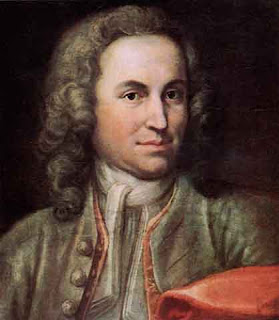Ludwig Van Beethoven
One of the great composers of the Classical period. He became deaf in his 20s (some books say in his 30s) but continued to compose music that is still much appreciated to this day. He wrote "Symphony No. 2, op. 36 (D Major)," Symphony No. 3 Eroica, op. 55 (E flat Major)," "Symphony No. 4, op. 60 (B flat Major)" and other great masterpieces when he was almost completely deaf.
Wolfgang Amadeus Mozart
At the age of 5, Wolfgang Amadeus Mozart already wrote a miniature allegro (K. 1b) and andante (K. 1a). He was sickly as a child and died at the young age of 35. Yet, his over 600 compositions still influence countless musicians and listeners to this day. Among his famous works are "Symphony No. 35 Haffner, K. 385 - D Major," "Così fan tutte, K. 588" and "Requiem Mass, K. 626 - d minor."
Johannes Brahms
At seven years old, Brahms learned how to play the piano under the instruction of Otto Friedrich Willibald Cossel. He furthered his studies of theory and composition under Eduard Marxen. Brahms became friends with the Schumanns and supposedly fell in love with Clara Schumann, Robert Schumann's wife.
Franz Joseph Haydn
As a young boy, Haydn possessed a very beautiful voice and spent most of his time singing in church choirs. As he matured he focused his talents on composing, steadily making a name for himself and earning quite well. Wolfgang Amadeus Mozart was a good friend of Haydn, in fact, Mozart's Requiem was performed at Haydn's funeral.
Felix Mendelssohn
Great achievements: Mendelssohn single-handedly rescued the music of Johann Sebastian Bach from oblivion and brought it to the attention of the world.
Fryderyk Franciszek Chopin
Either February 22, as stated on his certificate of baptism, or March 1, 1810 based on his and his family's statements. His parents were Mikolaj (Nicolas) Chopin, who was originally from France, and Tekla Justyna Krzyzanowska.
Johann Sebastian Bach
Johann Sebastian Bach was better known as a virtuoso organist than as a composer in his day. His sacred music, organ and choral works, and other instrumental music had an enthusiasm and seeming freedom that concealed immense rigor. Bach's use of counterpoint was brilliant and innovative, and the immense complexities of his compositional style - which often included religious and numerological symbols that seem to fit perfectly together in a profound puzzle of special codes - still amaze musicians today. Many consider him the greatest composer of all time.
Richard Wagner
A German composer and librettist famous for his operas. Among his famous works are the operas "Tannhäuser," "Der Ring des Nibelungen," "Tristan und Isolde" and "Parsifal."














